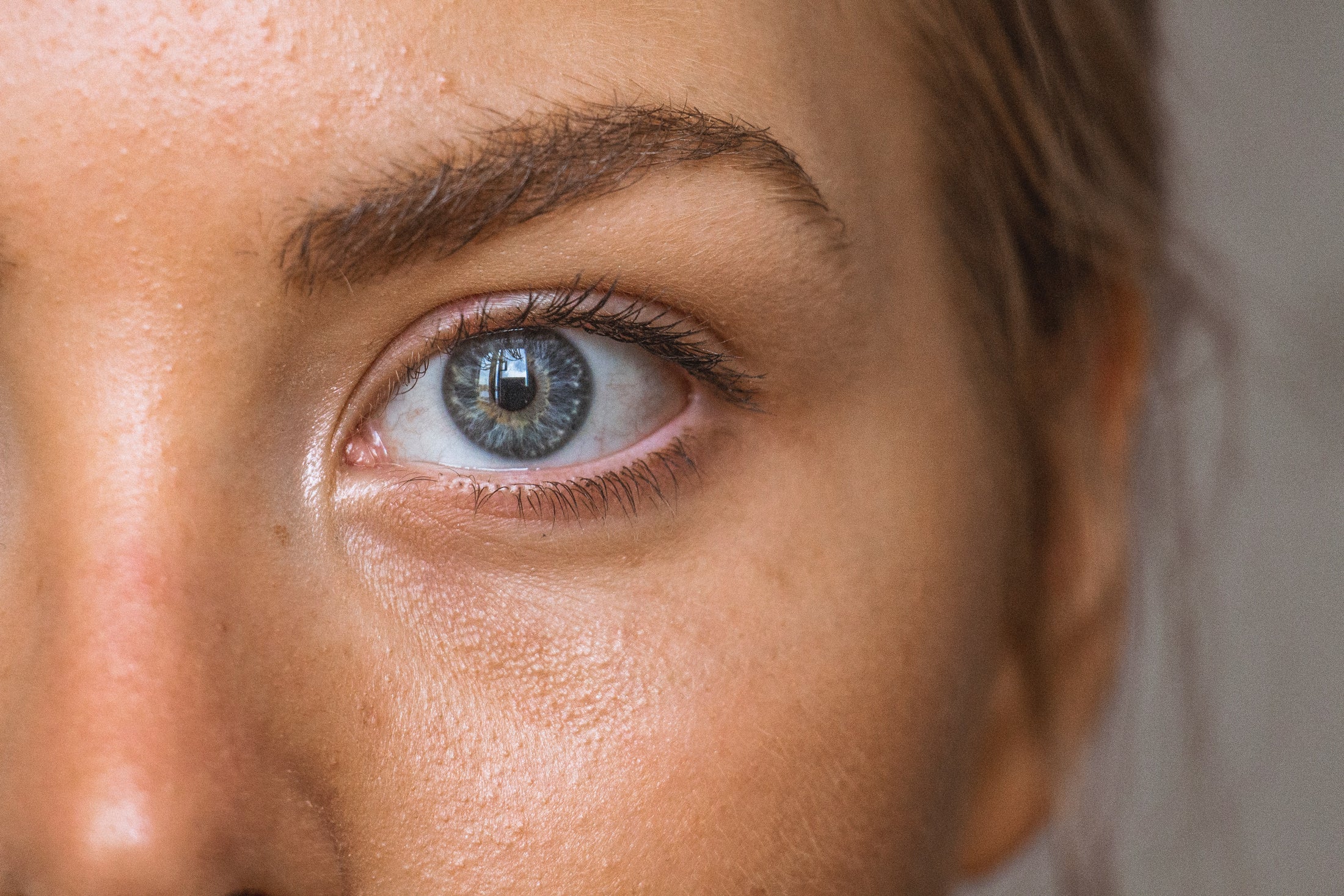
It’s the world Vs your eyes … and odds are the world is winning. With virtual everything becoming the new normal, eye fatigue from extensive Zoom calls + Netflix binging + doom scrolling is running rampant. And screen time isn’t the only thing to blame for constant eye stress. Wearing masks plus glasses (or sunglasses) increases inflammation; seasonal allergies can be brutal. All your investments in beautifying your eye area with creams and serums, liner, shadow and mascara may ultimately lead to the clogging of pores that you may not have even known existed. And there you have it – the perfect storm for dry, irritated, puffy…insert your eye complaint.
The positive side of all this eye irritation? Increased awareness that eye care is important. “I love that people are thinking more now about their eyes and how to take care of them,” says Dr. Nicky Shah, MD, an ophthalmologist in Long Island, New York who specializes in ocular surface diseases such as dry eyes and blepharitis. Like your skin or hair, the right eye care can dramatically improve your eyes’ beauty and health, says Dr. Shah, “Eye cleansing is an often-overlooked step and, while it seems simple, can have a tremendous impact on how your eyes feel and function.” In fact, Dr. Shah feels so passionately about the right kind of eye cleansing, she even developed the ingredient called L.A.S.H. complex that is used in Solvasa’s popular Clarity Soothing Eye Wipes.

So, what is the right way to care for your eyes…and what mistakes may you be making? Dr. Shah outlines two things to do—and two not to do—for your eyes.
DON’T go to bed without cleansing your eyes
“We all have these little oil glands called Meibomian glands that sit behind your eyelashes,” says Dr. Shah. “They can easily become clogged by environmental allergens, pollution, or from not removing makeup well enough. And when these glands get clogged, the oil inside them gets trapped and becomes rancid.” Rancid oil equals inflammation, redness, sagging, crepey skin and weak, wonky eyelashes. “In some cases, clogged glands will also cause your eyes to feel chronically tired, heavy, and burning,” says Dr. Shah. “In fact, the number one cause of blepharitis [inflammation of the eye lid] is clogged oil glands.” Yikes! So, how do you keep those glands in the clear? Deeply cleanse your eyelids regularly—even if you don’t wear makeup. “And use something super-gentle that allows you to get to the base of your lashes without stinging, irritating or leaving a slimy film on your eyes. You can't use any-old face wash or ingredients in the eye area,” says Dr. Shah, who says to look for cleansers that are ophthalmologist-developed and tested—and made specifically for the eyes. Her recommendation: Cleanse every single night to remove daily grime and makeup, then three to four times a week, go for a deeper (yet still gentle) clean with Solvasa’s Clarity Eye Wipes.

DO eat for your eyes
“Your gut microbiome and your eye health are connected,” says Dr. Shah, who cited a recent study that showed having too little “good” bacteria in your gut may lead to inflammation in the eyes—and dry eyes. Dr. Shah says they don’t know exactly why the two are linked, only that they are. So, eating foods shown to support a healthy, balanced gut, such as vegetables, legumes, beans and fruit—as well as fermented foods like yogurt, kimchi, kefir and kombucha—may help both your microbiome and your dry eyes.
DON’T rush out to buy blue-light blocking glasses
“So far, no studies have definitively shown that blue-light-blocking glasses have any helpful effects on the eyes,” says Dr. Shah, who cited one study in which people who wore blue-light-blocking glasses had just as much eye strain as those wearing a placebo pair. “The reason your eyes become so strained staring at a screen is not because of the blue light; it’s because you forget to blink,” she explains. “Normally, your blink rate is about eighteen times per minute, but when you're concentrating and staring at a screen, you may blink as infrequently as three times a minute. And without regular blinking, tears evaporate faster, and your eyes become extremely dry and strained.” So, how do you force yourself to blink more? “I recommend the 20/20/20 rule,” says Dr. Shah. “Every twenty minutes, look twenty feet away for twenty seconds. That will give your eyes a chance to refocus and blink more.”

DO baby your eyes during allergy season
“If you wear contact lenses and have allergies, take a break from the contacts during allergy season as often as possible because the lens traps allergens in the eye and exacerbates irritation,” says Dr. Shah. “You can also use artificial tears to lubricate the eye surface and wash away the allergens.” Finally, Dr. Shah says to be extra mindful to wash your hands frequently—and to limit hair products. Stickier products like hairspray “can attract and trap allergens, making your eyes’ exposure to the allergens worse.”
Want more information from Dr. Shah on proper eye care—as well as other interesting factoids about eyes? Check out Episode 5: The Eyes of the Beholder on The Beauty Construct Podcast, now available for download on Spotify or Apple Podcasts.

